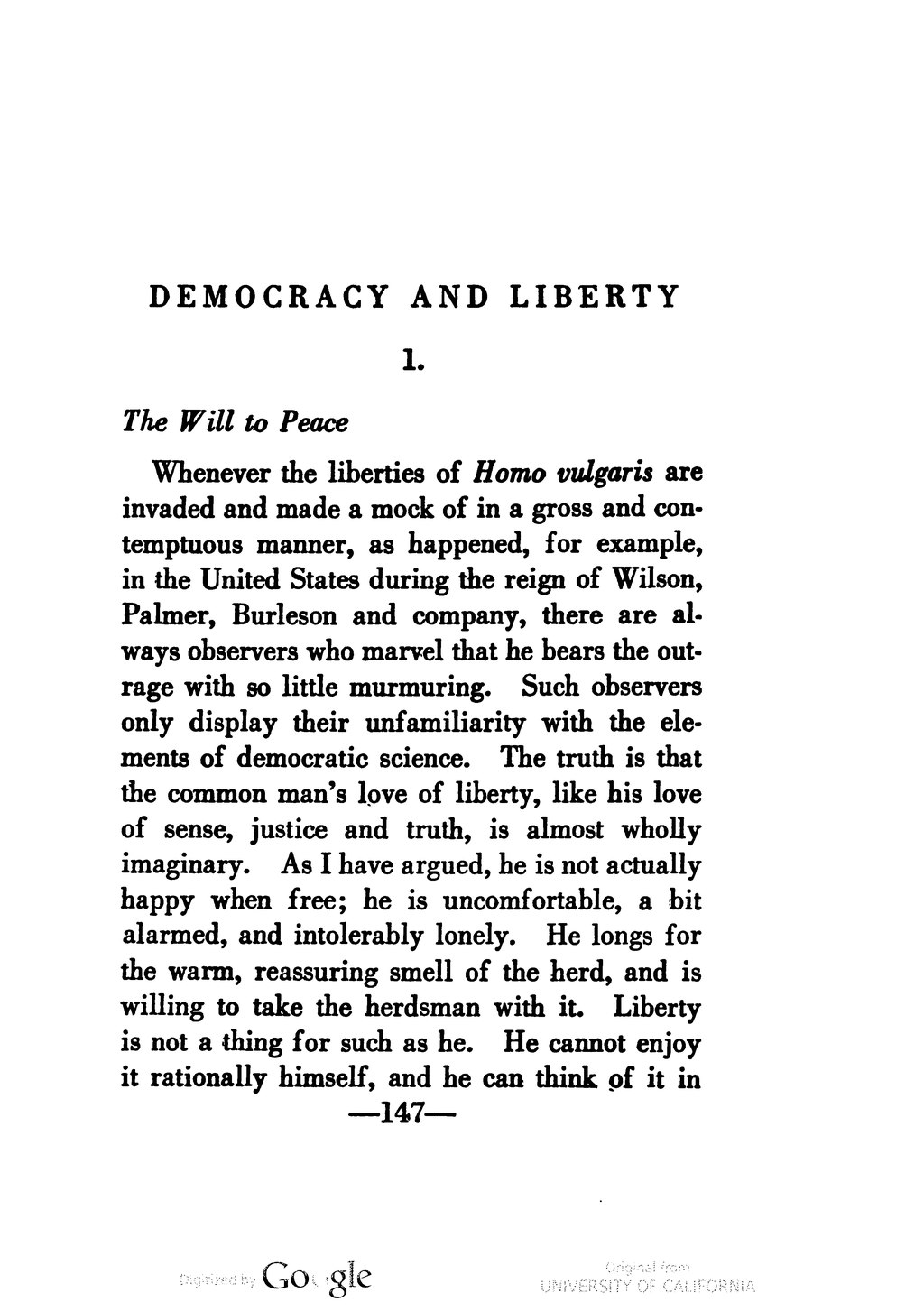DEMOCRACY AND LIBERTY
1.
The Will to Peace
Whenever the liberties of Homo vulgaris are invaded and made a mock of in a gross and contemptuous manner, as happened, for example, in the United States during the reign of Wilson, Palmer, Burleson and company, there are always observers who marvel that he bears the outrage with so little murmuring. Such observers only display their unfamiliarity with the elements of democratic science. The truth is that the common man’s love of liberty, like his love of sense, justice and truth, is almost wholly imaginary. As I have argued, he is not actually happy when free; he is uncomfortable, a bit alarmed, and intolerably lonely. He longs for the warm, reassuring smell of the herd, and is willing to take the herdsman with it. Liberty is not a thing for such as he. He cannot enjoy it rationally himself, and he can think of it in
—147—
